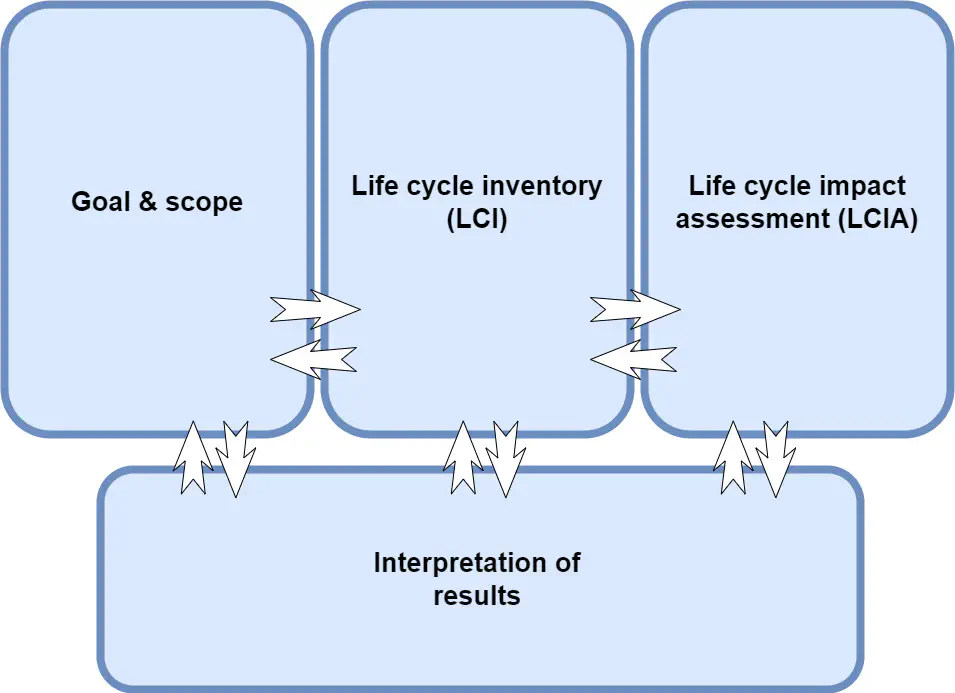A Generalized Schema to Publish and Share Life Cycle Inventories (LCI)
A novel and user-centric approach to improve the transparent reporting of LCI data
 The four phases in life cycle assessment
The four phases in life cycle assessmentLife cycle assessment (LCA) has quickly become one of the most popular techniques for evaluating the environmental viability of product systems in various technology sectors. These systems can range from those dealing with the valorization of refuse biomass as biochar, and direct air capture of carbon dioxide to sustainable fuel supply chains for next-generation aircraft. The results from LCA reports and investigations also play a key role in guiding decision-making and policy development.
LCA studies of systems can be easily undertaken through many open-source, commercial, and/or domain-specific tools provided that the end-user has access to the necessary life cycle data. This has led to a widespread adoption and utilization of LCA in the evaluations of emerging technologies. Furthermore, even non-subject experts are also able to publish LCA reports to forecast the potential environmental impacts of such complex engineering systems. The increased availability of these assessment results can theoretically support in improving and optimizing the development of these systems for a sustainable future. However, such benefits are negated due to the lack of FAIR (findable, accessible interoperable, reusable) data in LCA. A quick search in Scopus reveals that the past 5 years have seen a considerable increase in LCA investigations claiming novel findings on the potential life cycle impacts of technologies at low-medium technology readiness levels. However, only a small number of these investigations has transparently made the data available. An even smaller fraction of this available data is in a reusable form with minimal ambiguities. This lack in availability of data, underlying assumptions, and metadata regarding the product system in a structured format results in non-reproducible and irrefutable LCA calculations. Thus, conclusions from LCA investigations must be accepted at face value.
No standardized methods exist for publishing and sharing foreground LCIs with the relevant contextual information. As a first step to address this gap, this work proposes a novel, user-centric, machine-accessible, and extensible schema based on the Brightway LCA framework to share the foreground LCI. It is initially developed for generalized non-temporal LCAs. In this schema, an inventory is made up of five components: dataset, dataset properties, metadata, dependencies, and network. This schema is demonstrated for the use case of an aviation fuel supply chain using direct air capture system. A Python-based open-source tool has also been developed to convert LCIs according to the specifications of this schema.
Read the pre-print at HAL Science.
The Python tool can be found in GitHub.
Update 23.08.2025
Read the final published version at Journal of Cleaner Production